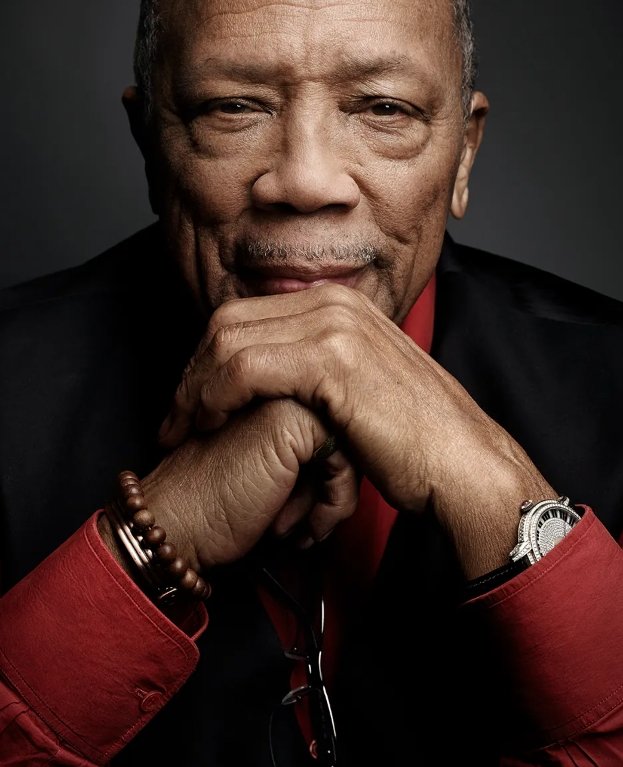
music titan who worked with everyone from Frank Sinatra to Michael Jackson, dies at 91
November 3, 2024
Quincy Jones, the multitalented music titan whose vast legacy ranged from producing Michael Jackson’s historic “Thriller” album to writing prize-winning film and television scores and collaborating with Frank Sinatra, Ray Charles and hundreds of other recording artists, has died at 91.
Jones rose from running with gangs on the South Side of Chicago to the very heights of show business, becoming one of the first Black executives to thrive in Hollywood and amassing an extraordinary musical catalog that includes some of the richest moments of American rhythm and song.
Born in Chicago in 1933, Jones would cite the hymns his mother sang around the house as the first music he could remember. But he looked back sadly on his childhood, once telling Oprah Winfrey that “There are two kinds of people: those who have nurturing parents or caretakers, and those who don’t. Nothing’s in between.” Jones’ mother suffered from emotional problems and was eventually institutionalized, a loss that made the world seem “senseless” for Quincy. He spent much of his time in Chicago on the streets, with gangs, stealing and fighting.
“They nailed my hand to a fence with a switchblade, man,” he told the AP in 2018, showing a scar from his childhood.
Music saved him. As a boy, he learned that a Chicago neighbor owned a piano and he soon played it constantly himself. His father moved to Washington state when Quincy was 10 and his world changed at a neighborhood recreation center. Jones and some friends had broken into the kitchen and helped themselves to lemon meringue pie when Jones noticed a small room nearby with a stage. On the stage was a piano.
“I went up there, paused, stared, and then tinkled on it for a moment,” he wrote in his autobiography. “That’s where I began to find peace. I was 11. I knew this was it for me. Forever.”
Within a few years he was playing trumpet and befriending a young blind musician named Ray Charles, who became a lifelong friend. He was gifted enough to win a scholarship at the Berklee College of Music in Boston, but dropped out when Hampton invited him to tour with his band. Jones went on to work as a freelance composer, conductor, arranger and producer. As a teen, he backed Billie Holiday. By his mid-20s, he was touring with his own band.
“We had the best jazz band on the planet, and yet we were literally starving,” Jones later told Musician magazine. “That’s when I discovered that there was music, and there was the music business. If I were to survive, I would have to learn the difference between the two.”
As a music executive, he overcame racial barriers by becoming a vice president at Mercury Records in the early ’60s. In 1971, he became the first Black musical director for the Academy Awards ceremony. The first movie he produced, “The Color Purple,” received 11 Oscar nominations in 1986. (But, to his great disappointment, no wins). In a partnership with Time Warner, he created Quincy Jones Entertainment, which included the pop-culture magazine Vibe and Qwest Broadcasting. The company was sold for $270 million in 1999.
“My philosophy as a businessman has always come from the same roots as my personal credo: take talented people on their own terms and treat them fairly and with respect, no matter who they are or where they come from,” Jones wrote in his autobiography.
Jones’ publicist, Arnold Robinson, says he died Sunday night at his home in the Bel Air section of Los Angeles, surrounded by his family. Jones was to have received an honorary Academy Award later this month.
“Tonight, with full but broken hearts, we must share the news of our father and brother Quincy Jones’ passing,” the family said in a statement. “And although this is an incredible loss for our family, we celebrate the great life that he lived and know there will never be another like him.”
